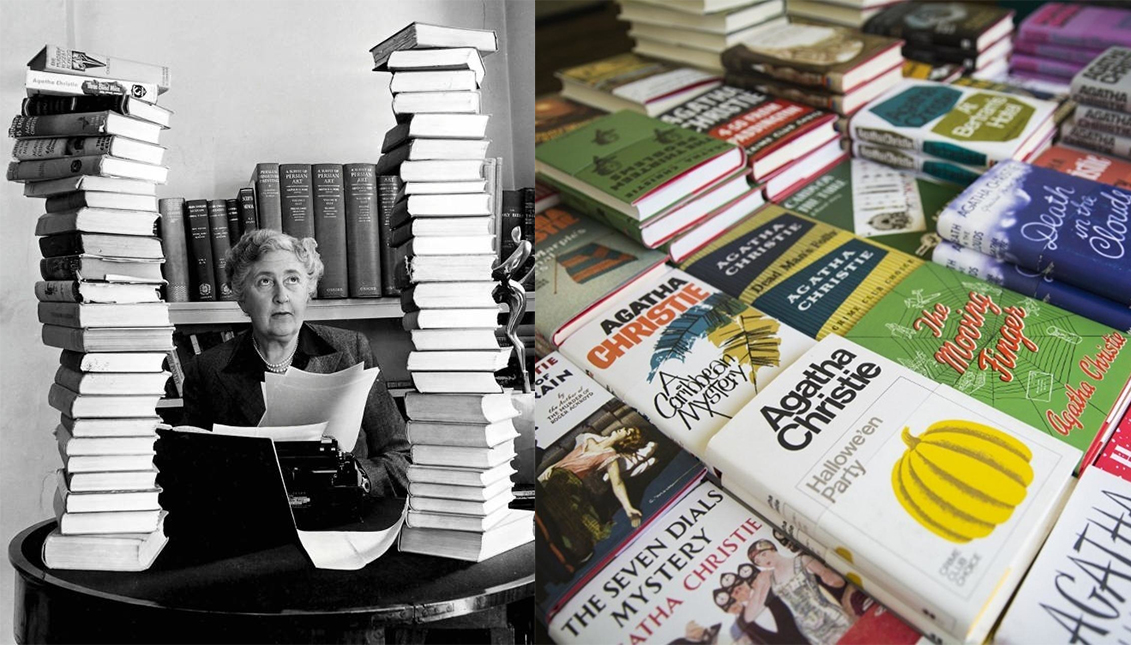
Agatha Christie under the anti-racist spotlight: Her most famous novel changes titles
The French edition of And Then There Were None, which until now was titled Ten Little N*****, has been modified the author's great-grandson.
First the young and attractive Mr. Marston died of poisoning, then the cook, Mrs. Rogers, the third was General MacArthur, who was frightened to death, and so on up to ten. Now the last to disappear from Agatha Christie's most famous novel is its original title, Ten Little N***** (Diz Petits Nègres).
The work, which in the Anglo-Saxon world is known as And Then There Were None, and which was renamed first in the U.S. and then in the United Kingdom in 1980, will now be called They Were Ten (Ils étaient dix) in France by a decision from James Prichard, the great-grandson of the mystery writer, who explained to AFP that the word "n*****" is offensive and will also be removed from the body of the novel, where it appears more than 70 times.
"Agatha Christie was mostly there to entertain and she would not have liked the idea of someone being hurt by one of her expressions. Today, fortunately, we can remedy this without betraying it," said her great-grandson, who announced that Éditions du Masque will publish the new 'pruned' version.
Prichard remarked that "when the book was written, the language was different and we used words that are now forgotten. This story is based on a popular children's song that is not even by Agatha Christie", and added that it was not Christie's intention to damage anyone's feelings.
"She wouldn't want a title that would distract from her work... If just one person felt bad, it would be too much! We must no longer use terms that can hurt: this is the behavior to adopt in 2020..." he concluded.
RELATED CONTENT
Christie's most-referenced novel in theater and film was published in the United Kingdom by the Collins Crime Club in November 1939 as Ten Little N*****, but was later renamed Ten Little Indians.
The original title of the book, as Prichard said, comes from a highly racist lullaby that appeared in children's books in the mid-nineteenth century and that Christie used in the novel's plot to advance the sinister fate of each of the 10 guests at the Owens' mansion. In the end, the lullaby also remained as Ten Little Soldiers, as did the island in the novel — 'N**** Island' — which became 'Soldier's Island.'
The Christie family's decision comes at a time when the cultural sector is shaken by the new anti-racist and anti-colonial momentum that has emerged in the wake of the BLM and the protests over the brutality and systematic abuse of people of color around the world.
In Latin America and Spain there is an edition entitled And Then There Were None, but the publisher was forced to add in parentheses ("Diez negritos") to make it recognizable.
The news has caused a lot of controversy on social media, especially among Agatha Christie's fans:
"Never!!! It will always be 10 Negritos. That's it. My Agatha's titles are not to be changed," wrote one Internet user. While others, more humorous, proposed changing the title from Murder on the Orient Express to "Sustito" on the Orient Express. "What a pity they can't disinherit (the great-grandson)," replied another Twitter user.












LEAVE A COMMENT: